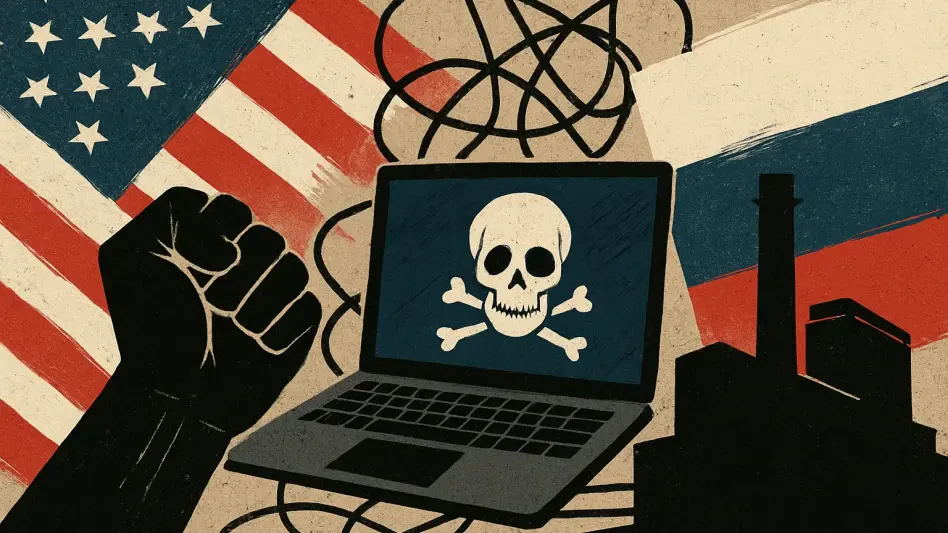In the complex dynamics of international conflict, the cyberspace battleground has emerged as a pivotal arena for Iran and Israel. The chilling interplay of strategic digital confrontations has increasingly become a hallmark of their conflict. Recent developments underscore the shift from traditional military responses to cyber strategies as a dominant form of hostility expression. A focus on understanding the ramifications of these cyber retaliations reveals the critical impact they have on the geopolitical fabric of this enduring conflict. The ongoing cyber operations between Iran and Israel highlight a fascinating narrative filled with intricate cyber maneuvers, espionage, and digital warfare. The digital shadow war is far from being an isolated occurrence; rather, it exists as an integral component of the broader geopolitical contest between the two nations.
The Basis of Iran-Israel Cyber Hostilities
The Wake of Operation Rising Lion
Following recent Israeli military operations, termed ‘Operation Rising Lion,’ targeting key Iranian military and nuclear sites, an uptick in cyber activity has been noted from Iran as a form of retaliation. The operation saw significant damage inflicted on Iranian assets, severely impeding conventional military response capabilities. This has shifted the focus towards cyber engagements as Iran seeks alternatives to assert its power. The cyber retaliation encompasses state-sponsored efforts and hacktivist campaigns strategically targeting Israeli infrastructure to destabilize critical systems. The analysis by cybersecurity leaders highlights an anticipated escalation in these engagements, primarily focused on disrupting infrastructure across several strategic domains.
Iranian digital offensives have highlighted their adaptation to a changing warfare landscape. The targeted campaigns are marked by sophisticated strategies, including espionage, distributed denial-of-service (DDoS) attacks, ransomware, and wiper malware aimed at crippling Israel’s critical infrastructure. The precise targeting of industrial control systems, utilities, and healthcare networks underscores a calculated attempt at disruption. The focus is on Israeli government and defense networks, with efforts geared towards infiltrating sensitive military data. Through social engineering and zero-day exploits deployment, Iranian cyber units employ measures that appear legitimate, utilizing compromised third-party vendors as unwitting accomplices in these attacks.
Strategic Intent Behind Cyber Campaigns
The underlying motivations driving Iranian cyber operations are deeply entrenched in its strategic objectives. The integration of cyber capabilities as a form of retaliation aligns with an age-old tradition of asymmetric warfare, a necessary response given military shortcomings. Iran’s historical affinity for information warfare is dovetailed with modern digital methods, manifesting in AI-driven botnets and disinformation campaigns. These operations aim to undermine public confidence in the Israeli government, chipping away at societal cohesion. Furthermore, the exploitation of social media and digital platforms facilitates the dissemination of divisive narratives, incrementing geopolitical tensions with every dissonant message broadcast.
Moreover, Iran’s evolving cyber capabilities have proven to be a formidable challenge for Israel, a nation renowned for its advanced technological prowess. The expanding sophistication of Iranian cyber actors highlights a persistent endeavor to cultivate expertise in digital warfare, exploiting vulnerabilities across Israeli systems. As Iran’s arsenal of cyber tools grows, so does its ability to execute operations with increasing complexity and precision, often achieving significant strategic gains without resorting to physical conflict, thus prolonging the geopolitical strife.
Iran’s Cyber Offensives: Tactical Analysis
Evolving Cyber Threat Landscape
The cyber landscape has seen a notable increase in hostilities since 2020, with Iran leaning heavily on groups such as APT35 (Charming Kitten), MuddyWater, and CyberAv3ngers to execute its digital strategies. These groups emphasize targeting critical infrastructure like water utilities, healthcare systems, and industrial control environments within Israel. The sophistication of these offensives cannot be underestimated, as intelligence consistently points towards advanced reconnaissance missions focusing on vulnerable public transit networks. The strategic targeting signifies not only an evolution of tactics but also a clear understanding of the potential societal impacts produced through well-orchestrated cyber operations.
Iran’s broadened cyber capabilities are a testament to both an increased strategic focus on digital warfare and a critical understanding of its implications. Recent intelligence links these operations to attempts at compromising platforms used for surveillance and military communication, highlighting the tactical awareness within Iranian cyber strategies. The ongoing campaigns reflect a concentrated effort to strengthen their position within cyberspace, revealing a troubling trend that equally mirrors the growing significance of cyber tools as military assets. These cyber aggressions are reshaping the paradigm of modern conflict where the digital domain has become as crucial as the physical battlefield.
Recommendations for Enhanced Cyber Defense
Given the heightened cyber threat landscape, cybersecurity organizations, notably Radware, have outlined vital recommendations for protecting Israeli infrastructure. Emphasis has been placed on rigorous monitoring of networks for potential compromise signals, specifically those linked to known Iranian advanced persistent threat (APT) groups. By employing comprehensive patch management and reinforcing multi-factor authentication across all services, organizations can significantly reduce the risk profile of internet-facing systems. Proactive preparation against phishing schemes is encouraged, alongside the deployment of updated incident response playbooks specifically tailored to nation-state-level threats.
Furthermore, the crucial role of counter-disinformation strategies has been underscored. By collaborating with credible media, organizations can mitigate the adverse impacts of false narratives, ensuring the integrity of information disseminated to the public. In a landscape defined by rapid technological evolution and growing cyber sophistication, maintaining resilience through robust cybersecurity measures is paramount. As such, the ongoing challenge lies in not only countering immediate threats but also fostering an organizational culture attuned to the nuances of digital aggression and fortifying defenses against emergent vulnerabilities.
Conclusion: Navigating the Digital Battlefield
In response to Israel’s ‘Operation Rising Lion,’ aimed at Iranian military and nuclear installations, Iran has stepped up cyber operations as an act of retaliation. This operation inflicted notable damage, disrupting Iran’s traditional military abilities, thus steering them toward cyber tactics as a means to exert influence. The cyber strike includes government-backed initiatives and hacktivist efforts focused on disturbing Israel’s infrastructure to destabilize crucial systems. Cybersecurity experts foresee escalating cyber confrontations concentrating on critical infrastructure.
Iran’s cyber threats have adjusted to the evolving nature of warfare, employing intricate plans such as spying, DDoS attacks, ransomware, and wiper malware, all designed to impair Israel’s vital infrastructure. These attacks precisely target industrial control systems, utilities, and healthcare networks, attempting to cause considerable disruption. Priority is given to Israeli government and defense systems, aiming to penetrate sensitive military data. Iranian cyber forces leverage social engineering and zero-day vulnerabilities, using compromised third-party vendors to execute these assaults.








